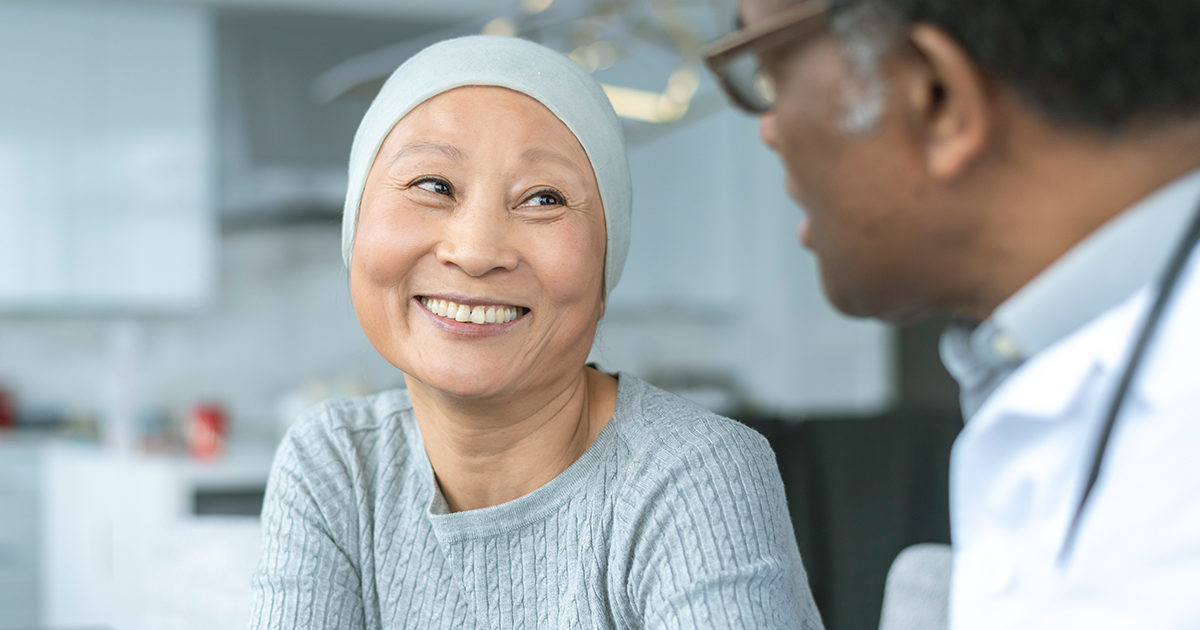About Hyperthyroidism
Your endocrine system is a set of organs and glands that produce hormones, which your tissues use to send signals to each other. Located in the front of your neck, your thyroid gland secretes hormones that regulate how your body uses energy. When the thyroid gland releases too much thyroid hormone, many of the body’s processes speed up as a result. This overproduction of thyroid hormone can have multiple underlying causes, including an autoimmune condition known as Graves’ disease, overactive thyroid nodules, thyroiditis (inflammation in the thyroid gland), excessive iodine intake, and overuse of thyroid hormone medication. In rare cases, hyperthyroidism can be caused by a noncancerous tumor in the pituitary gland.
In the United States, approximately 1 out of every 100 people over the age of 12 have hyperthyroidism. The condition is initially managed with medication, though some patients will ultimately require surgery.
Symptoms of Hyperthyroidism
Symptoms of hyperthyroidism are a result of the body’s accelerated use of energy caused by excess thyroid hormone.
Symptoms of hyperthyroidism may include:
- Difficulty sleeping
- Fatigue
- Frequent bowel movements
- Irritability
- Rapid, irregular heartbeat
- Excessive sweating
- Unexplained weight loss
- Weak or shaky muscles
Risk Factors for Hyperthyroidism
Certain people are at greater risk for developing hyperthyroidism.
Risk factors for hyperthyroidism may include:
- Age: Hyperthyroidism is more common in individuals over the age of 60.
- Comorbid conditions: Hyperthyroidism is associated with pernicious anemia, type 1 or type 2 diabetes, and primary adrenal insufficiency.
- Family history: Individuals with a family history of thyroid disease are more likely to develop hyperthyroidism.
- Health history: A recent pregnancy and use of medications containing iodine may increase an individuals’s risk of developing hyperthyroidism.
- Personal history: Research suggests high dietary iodine consumption and nicotine use may put you at risk for developing hyperthyroidism.
- Sex: Female patients are more likely than male patients to develop hyperthyroidism.
Treating Hyperthyroidism at UT Health Austin
Hyperthyroidism treatment begins with a consultation in which an endocrinologist or endocrine surgeon will evaluate whether your condition should be managed through medication, with radioactive iodine treatment, or surgery. Your care team will work with you to determine the best course of treatment.
Care Team Approach
At UT Health Austin, we take a multidisciplinary approach to your care. This means you will benefit from the expertise of multiple specialists across a variety of disciplines caring for you in one place to avoid having to schedule multiple appointments with providers at locations all over the city. The Surgical Oncology Clinic team includes a fellowship-trained endocrine surgeon who specializes in diagnosing and treating cancerous and noncancerous conditions that affect the thyroid, parathyroid, and adrenal glands. Whether your endocrine condition is cancerous or not, the Surgical Oncology team works closely with your referring provider to provide integrated, whole-person care.
Through our Multidisciplinary Case Conferences, we collaborate with our colleagues at the Dell Medical School and The University of Texas at Austin to utilize the latest research, diagnostic, and treatment techniques, allowing us to identify new therapies to improve your treatment. We focus on applying advanced surgical techniques, including minimally invasive approaches, and nonsurgical treatments such as radiofrequency ablation. These procedures are offered with comprehensive attention to your complex needs, including medication management, nutrition, physical therapy, psychosocial wellbeing, and financial support. Advanced imaging and lab testing are also available on-site if needed.
Learn More About Your Care Team

Surgical Oncology
Health Transformation Building, 8th Floor
1601 Trinity Street, Bldg. A, Austin, Texas 78712
1-833-UT-CARES (1-833-882-2737)
Get Directions